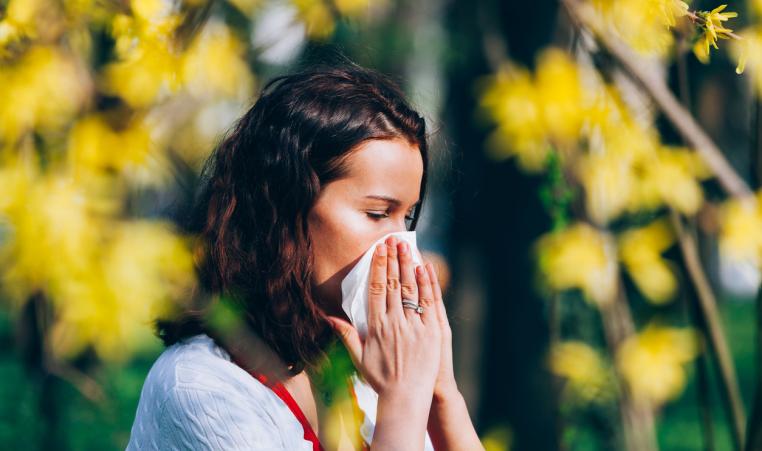Spring has Sprung : 5 Ways to Beat Allergies Symptoms

Spring doesn’t just mean thunderstorms and gorgeous flowers. For a select few, spring means runny noses, itchy and watery eyes, and headaches. The most common allergy triggers are tree, grass, and weed pollen. Those of us who feel our worst in spring do so because of all the pollen in the air, which is an extremely common allergy trigger. While stocking up on allergy medications is a good precaution, there are ways to manage seasonal allergies that can help you to enjoy the wonderful days of spring instead of enduring them in agony. Learn the five ways to beat seasonal related allergy symptoms.
One- Treat Allergies Early!
Most people think that spring pollen doesn’t hit until the flowers and tree blooms are in full bloom. This is, unfortunately, not true. Spring pollen can start dispersing in the air as soon as it warms up enough for trees to even begin budding. People usually don’t recognize this, which is why allergies seem to hit them so hard. If you take you medications to control your seasonal allergies, you should start about a month earlier than you think you should. If you start on your medication early, it will build up your resistance to the allergy symptoms.
Two- Know your OTC Allergy Medications
The three main kinds of over-the-counter (OTC) medications that help control seasonal allergies are topical nasal sprays, inhaled corticosteroids, and antihistamines. Sometimes decongestants are included. If you have mild seasonal allergies, nasal sprays and inhalants and oral OTC antihistamines can both effectively manage your symptoms. Remember, however, that allergies last for weeks and most decongestants are aimed at colds (meaning they only last a few days). Use decongestants on a short-term basis only. Talk to your doctor if you are concerned about any OTC medications.
Three- Control Allergies by Controlling your Environment
While you don’t want to live indoors during spring considering how beautiful it is, you should consider wearing an allergy mask while doing yard work, since that will most severely impact your seasonal allergy symptoms. If you are working outside in the afternoon, take your allergy medication at lunch so it has time to enter your system before the pollen. This way, it can help you to build a resistance. Keep an eye on that pollen count! In your car, make your ventilation recirculate. Don’t use humidifiers or vaporizers though, the droplets can lead to problems with mold.
Four- Natural Allergy Remedies
Some natural remedies can help, but remember that they aren’t perfect. You can use the neti pot, which flushes out the nasal cavity by using gravity to rinse it with a saline solution. The neti pot can minimize allergy symptoms. It rinses the mucus and irritation out, but doesn’t remove the pollen.
Five- See an Allergist
If your OTC just isn’t cutting it, make sure you visit an allergist. They can help you determine exactly what it is that you are allergic to by discussing your symptoms and performing skin tests. They can also test for antibodies in your blood that can signal the presence of allergies. Some allergists will encourage you to take allergy shots, which build up your immunity to an allergen by exposing your immune system to small amounts of it!
Whatever you do to take care of your allergies, make sure that you have it approved by your doctor. Allergies can be a pain, but don’t let them stop you from enjoying your spring!
